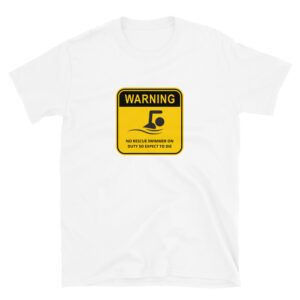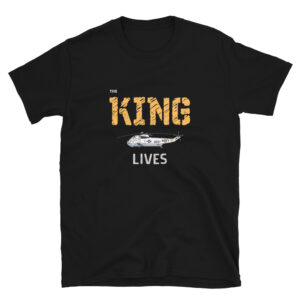Don't miss our flash to bang SALES!
WW2 Infantryman’s True Story in Normandy
An Infantryman’s True Story in Normandy
I landed on D+2 at Utah Beach, Normandy, France as a replacement for Company “C” 357 Inf. 90th Division. I fought as a rifleman from June 8, 1944 to Jan. 13, 1945, without being wounded. Any infantryman, who landed in Normandy, France on June 06, 07, 08, or 09, 1944, saw plenty of combat action against the enemy (The German Army).
An infantryman had to fire his weapon, whether it was a M1 rifle, BAR, or machine gun, at the enemy. He also had to throw hand grenades from behind one hedge, to where the enemy was taking cover, behind another hedge. At the same time he has to seek cover behind a hedge, all the while, he is being fired upon by the enemy with rifle fire, concussion grenades, machine gun fire, motor shells, and artillery.
He has to pray, that he is not wounded or killed. He has to relieve himself often, (pee). When darkness falls, he has to dig a fox hole, and open a can of “C” or “K” rations, then if he has a buddy near him, they take turns on guard, one sleeps 2 hours and then the other one, wakes him, and then he sleeps 2 hours. This is to be sure that the enemy doesn’t counterattack, and catch us both asleep. If the enemy doesn’t attack during the night, then we have to attack. Some days we may take one or two rows and some days we take none, other days we have to fall back.
This hedgerow fighting went on for over a month until we finally broke out of the hedgerows. It was a great relief to be able to ride atop a Patton Tank until we met resistance again. Then it was back to fighting and digging foxholes again.
General Patton was our commander. We hated him because he made us continue to chase the enemy, after we broke out of the hedgerows. We were tired. Then our Sherman Tanks ran out of gas, and we had to park them in open fields.
This is when the enemy observers saw us and they zeroed in on us, and we were clobbered. After that we all loved General Patton and think that he was the greatest General we ever had.
We had just broken through the hedgerows of Normandy and were traveling fast and meeting no resistance. We entered the town of St. Susanne and settled down for the night. My sergeant told me to stand in the middle of the road because “B” Co was coming through and I was to tell them to go to the left, at the fork in the road about 50 yards up the road.
It was about midnight and I heard a truck coming and soon saw it approaching me. I said “HALT” and jumped onto the running board, I asked “B” CO, and heard the driver say “VAS IS.” I realized then that they were Germans. I jumped off the running board and started to run toward the buildings, yelling “JERRIES JERRIES.” My squad opened fire on the truck as it started to move forward. It went about 20 feet and stopped. We counted nine soldiers in the back of the truck and three in the front seat. All were dead or dying. My sergeant removed a luger pistol from the dead Captain and gave it to me.
We moved so fast in the breakout of Normandy that there were pockets of Germans hiding out in different locations. Most of the Germans didn’t realize that we were ahead of them. This is one of the many combat experiences I was involved in.Crossing the Moselle River
I am writing this experience because I have read in the newspapers and veteran magazines that 1200 WW11 veterans die each day. They all stress that we should tell our stories so that our children and others would realize that “WAR IS HELL.”
Tonight is June 21, 2002 and it is 0200 hours and I cannot sleep thinking of WW11 (58 years ago)
I remember it this morning as if it were yesterday. We were on the banks of the Moselle River and had been told earlier that we were to attack at 0500 and at 0400 the artillery, mortars, and machine guns would open fire on the enemy positions on the opposite bank. At 0400 our firing began and it stopped at 0500 and my squad climbed into pontoon boats. There were 4 to 6 men in each boat and we had to paddle to the opposite shore and attack the enemy. We paddled as fast as we could, all the while, the enemy sent flares into the sky, lighting up our crossing and firing mortar and artillery shells at us. My boat and some others made it to the other side. Other boats overturned due to the swollen and swift current of the Moselle. Others were hit with mortar and artillery fire.
We jumped out of our boats and started to fire our rifles at the top of the bank. We received no return fire and climbed to the top of the riverbank.
There we saw one of the best sites and surprises of the war. In front of us was a trench about 5 ft. deep and about 2 ft. wide. It ran quite a long way, mostly to the left of where we were and at our right, it curved and went inland, on our right side front, were trees, probably 3 or 4 about twenty to thirty feet tall. We jumped into the trench and knew that we would not have to dig a foxhole tonight. The Germans had retreated and we were alone.
At 1400 word came down to us to be on the lookout for a counterattack and see if we can take any prisoners if they do counterattack. Just before darkness the Germans counterattacked us. We didn’t know how many or them there were. They had very little cover and we kept firing at them. Some of us who had German pistols and other stuff began to throw them into the Moselle River. I threw my German luger pistol into the river. We didn’t want to be caught with them for fear of what they would do to us. As it happened we stopped them cold and they turned and ran. As darkness came, one enemy soldier was wounded and kept moaning “Ma, ma, ma” all evening long. This was terrible to listen to all evening and if we could, we would have killed him. It was very demoralizing. At midnight we could hear the enemy moving around. We surmised that the Germans were removing their wounded and dead. As daylight arrived we saw two German medics waving a white flag and motioning to us that they wanted to remove their wounded and dead. This, we let them do and it was a peaceful morning.
The Things Our Father’s Saw is other first hand accounts of the “war over there” and Rick Atkinson’s Pulitzer Prize books on WWII like the Guns Last Light (a three part series) are simply amazing. All four books are definite must reads in my opinion.
If you like this story check out other Veteran stories on our story page too!
The Frontlines uses referral links cover the web hosting, research and gathering of stories to preserve military history and humor. The items linked to are my personal favorites of stuff or things I have read over the years. Thank you for your support!
Popular Products
-

Warning No Rescue Swimmer
Price range: $16.50 through $22.50 Select options This product has multiple variants. The options may be chosen on the product page -

Still Waiting for an Idea
Price range: $20.00 through $28.50 Select options This product has multiple variants. The options may be chosen on the product page -

The King Lives
Price range: $20.00 through $28.50 Select options This product has multiple variants. The options may be chosen on the product page -

Pilot in Progress
Price range: $20.00 through $28.50 Select options This product has multiple variants. The options may be chosen on the product page




